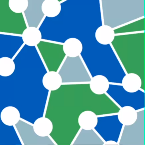Difference between revisions of "ARACNe"
(→NOTICE) |
(→NOTICE) |
||
| Line 2: | Line 2: | ||
==NOTICE== | ==NOTICE== | ||
| − | + | The version of ARACNE available in geWorkbench v1.0.4 is the first release of the ARACNE program as a part of geWorkbench. It should be regarded as a beta-release. Because the ARACNE program is written in C++, its executable is separate from geWorkbench but it called through the geWorkbench interface. Executables for Windows, Linux and Macintosh PPC are included. In a future release, ARACNE code will be fully integrated into geWorkbench. | |
==Comparison with Reverse Engineering component== | ==Comparison with Reverse Engineering component== | ||
Revision as of 14:37, 1 September 2006
NOTICE
The version of ARACNE available in geWorkbench v1.0.4 is the first release of the ARACNE program as a part of geWorkbench. It should be regarded as a beta-release. Because the ARACNE program is written in C++, its executable is separate from geWorkbench but it called through the geWorkbench interface. Executables for Windows, Linux and Macintosh PPC are included. In a future release, ARACNE code will be fully integrated into geWorkbench.
Comparison with Reverse Engineering component
The ARACNE code implements a published, well characterized method. Please see Margolin et al., Nature Protocols (2006), Vol 1 (2) p663-672 for a full description of this code and interface (http://www.nature.com/nprot/journal/v1/n2/abs/nprot.2006.106.html). The ARACNE algorithm allows application of the DPI (Data Processing Inequality) to remove indirect interactions. It also allows calculation of a full interaction matrix if desired. The method that the Reverse Engineering component implements is similar but has not been published. It uses an approximation to the mutual information calculation that is differnt than the full ARACNE method. It only supports calculations about a single hub gene.
Quick Example
Most of the tutorial information in the Reverse Engineering component applies, but the GUI and steps are slightly different.
- You must load a microarray dataset, e.g. "webmatrix2_quantile_log2_dev1.2_mv0.exp" (2226 probes).
- Set a hub gene (e.g 1973_s_at)
- Set the MI threshold, e.g. to 0.2
- You can specify a location for the output adjacency matrix to be written. By default it is placed in the same folder as the input microarray data file.
- At the bottom of the ARACNE component hit the Run button. Progress is tracked in the text box at left.
Because ARACNE is executed outside geWorkbench, it does not yet have an automatic visualization component. You must go to the Network Browser component and open the adjacency matrix there to view it.
